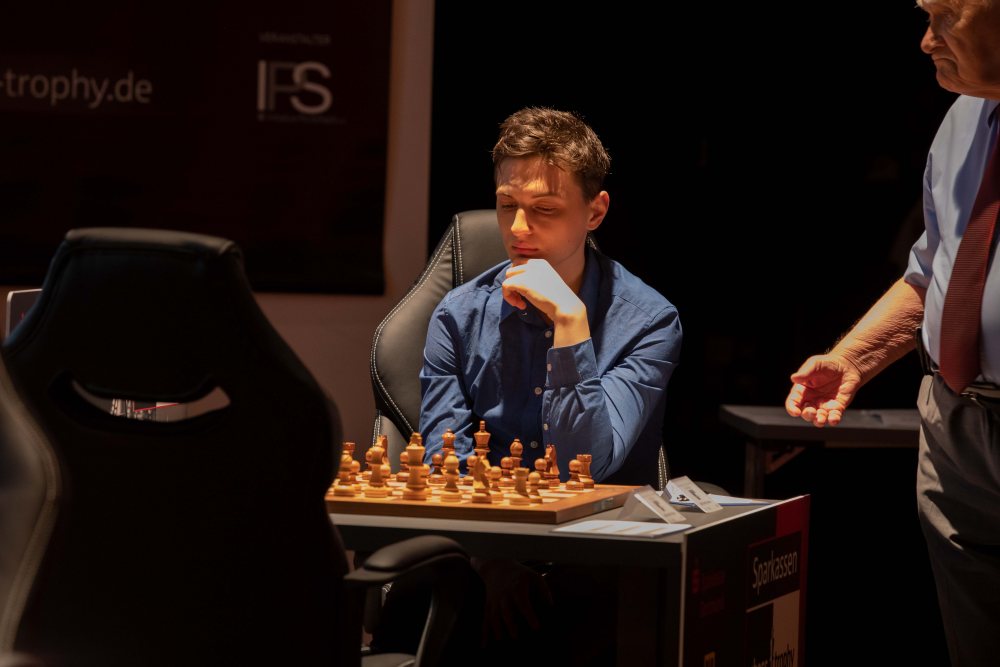Dortmund, Germany – The 52nd Sparkassen Women Masters chess tournament commenced with a contest that was less a sprint and more a cerebral marathon. On Saturday, the opening game between two prominent German Grandmasters, Elisabeth Pähtz (2406 Elo) and Dinara Wagner (2404 Elo), transcended a mere match, evolving into a remarkable display of tenacity and technical precision that captivated observers from its very first move.
A German Derby Unfolds
The ceremonial first move, executed by Dortmund`s Mayor Norbert Schilff, officially inaugurated the tournament, setting the stage for what was expected to be a competitive event. However, few could have anticipated that the very first encounter would etch itself into the annals as a testament to human endurance and strategic depth. This `German duel` was not only the curtain-raiser but also the longest game played on the inaugural day, stretching well beyond the typical duration of elite chess encounters.
The Grinding Battle for Supremacy
The game itself was a testament to the evolving dynamics of modern chess. Both players navigated the opening with a blend of caution and ambition. As the middlegame unfolded, Elisabeth Pähtz meticulously maneuvered her pieces, gradually accumulating an advantage. By move 93, she had secured an extra piece for two pawns—a material advantage that, in the hands of a grandmaster, typically signals a decisive lead. Yet, Dinara Wagner, with commendable resilience, refused to yield, pushing the game into a complex and arduous endgame.
The Ultimate Endgame Test: Knight and Bishop vs. King
It was in this protracted endgame that the true drama of the match reached its zenith. The position transitioned into a classic, yet notoriously difficult, theoretical endgame: Knight and Bishop against a lone King. For the uninitiated, this might sound deceptively simple. In reality, it is one of the most challenging fundamental endgames in chess, requiring an exact sequence of moves, often involving precise triangulation and king maneuvers, to force checkmate.
“Winning with Knight and Bishop against a lone King is less about brute force and more about geometric artistry. It’s a painstaking process, akin to teaching a stubborn cat to retrieve a newspaper – theoretically possible, but demanding immense patience and a flawless technique.”
Many a player, even at the grandmaster level, has faltered in executing this particular checkmate due to its intricate nature and the ample opportunities for the defending side to prolong the game, or even force a draw through stalemate or the 50-move rule.
129 Moves of Unyielding Precision
Pähtz, however, demonstrated a masterclass in converting this theoretical advantage into a practical victory. For 36 agonizing moves, from move 93 to the final 129th move, she systematically tightened the net around Wagner`s king. This was not a blitz game where intuition often dictates play; it was a slow, deliberate dissection of the position, where every move had to be calculated with surgical precision. The sheer mental fortitude required to maintain such focus for over 100 moves, let alone 129, under tournament conditions, is truly remarkable.
A Symbolic Victory
When the final checkmate was delivered on move 129, it wasn`t just a win; it was a statement. Elisabeth Pähtz`s victory over Dinara Wagner was a powerful demonstration of her enduring skill, deep theoretical knowledge, and unwavering resolve. For Wagner, despite the loss, extending the game to such a formidable length against an experienced opponent speaks volumes about her defensive prowess and fighting spirit.
This epic encounter has undoubtedly set a high standard for the 52nd Sparkassen Women Masters, promising a tournament filled with strategic depth, intense battles, and perhaps, a few more tales of extraordinary chess endurance.

